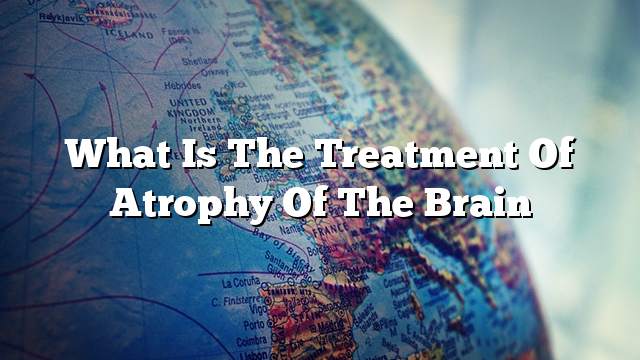Definition of atrophy of the brain
The term “brain atrophy” indicates a decrease in its size, which means that it will lose some neurons and the bonds between them because of its diminished size. This condition is a common factor among many disorders, including dementia.
Types of brain atrophy
Brain atrophy is divided into the following two types:
- General Type: Indicates that the whole brain has been impaired, leading to its small size.
- Central Type: It means that only a specific part of the brain is the one who has been afflicted – that is, the cells that are controlled by that area are the ones that are affected.
Brain areas affected by atrophy
Although the size of the brain is reduced in patients with dementia, the two most affected areas are cortex and hippocampus. The cerebral cortex helps to remember, think and plan, while the hippocampus forms a new memory. The atrophy of the brain in Alzheimer’s patients begins in the form of memory problems.
In the case of frontotemporal dementia, the frontal and temporal regions are the most affected, usually manifested as changes in behavior and personality. Simple brain ischemia is common as age progresses. A study of healthy people between the ages of 60 and 90 found that there was some dementia that arose within just one year.
Symptoms of atrophy of the brain
Atrophy of the brain causes dysfunction that affects the person’s daily life, including the continuous deterioration of memory, mental abilities and executive functions, including planning and organization, as well as the ability to learn and perceive the spatial visual. Symptoms of atrophy of the brain include:
Causes of atrophy of the brain
The following conditions, and many others, cause brain dysfunction:
How to diagnose brain atrophy
Brain atrophy is diagnosed through the following methods:
Treatment of brain atrophy
The treatment of brain atrophy depends on the cause, and the speed of its exacerbation depends on its cause, but there is no cure for it. It is treated with the treatment of complications and symptoms.
Best foods for people with atrophy of the brain
The best foods recommended for people with atrophy of the brain include:
How to prevent the atrophy of the brain
Some studies have found that exercise may restore the brain or areas affected by its real size and slow down the disease. Another study pointed out that the use of dietary supplements of vitamin B, including vitamin B6, vitamin B12 and folic acid that also help in it.
Tips to keep your brain healthy
It is recommended to do the following to maintain brain health:
- Maintain brain activity : By entering into multilevel activities, for example, surfing the net or watching television without a goal is not a brain activity. But it is recommended that activities that require the collection of information with the knowledge already existing and converted to new information. It is recommended that you do this regularly to strengthen your brain even as you age.
- Reading or viewing purpose of television : When learning anything new and thinking about it afterwards, it helps to understand and deepen it.
- Talk to others : It strengthens the strength of the brain, especially in the elderly because they usually spend much of their time alone, so it is recommended to avoid loneliness because of its negative effects on brain functions.
- Learn new things : Computer programs, languages or even crosswords, it stimulates the brain to react differently.
